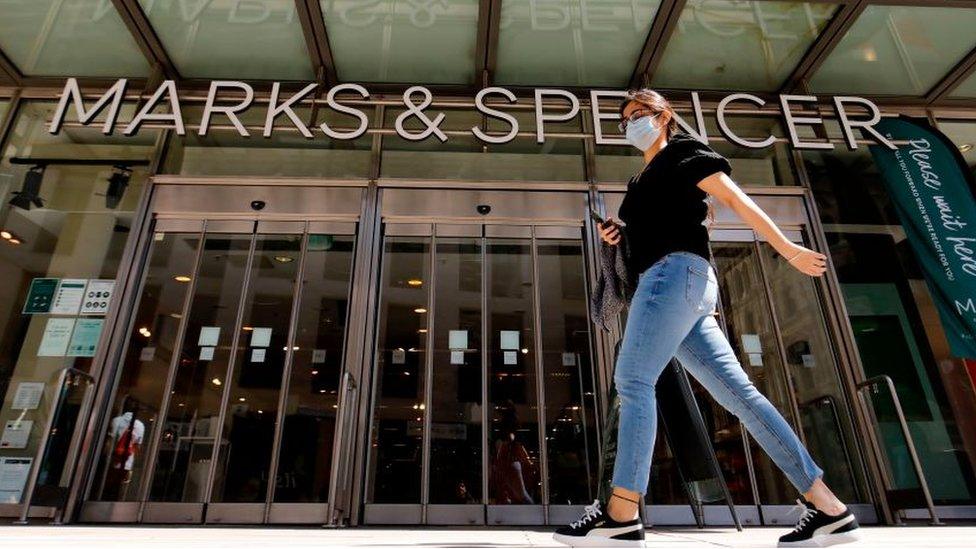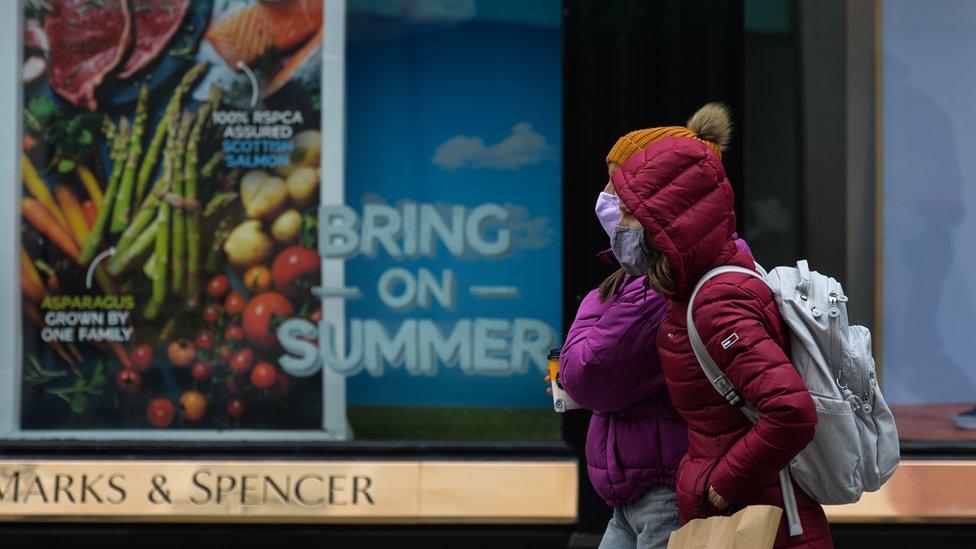M&S Bank branch closures reflect shift to online
- Published
- comments

The closure of all 29 M&S in-store bank branches is another sign of how bricks and mortar banking is falling out of favour, an analyst has said.
All 29 are shutting on Friday, ahead of the withdrawal of M&S Bank from the current account market.
It is a turnaround from the launch of branches in its department stores in 2012 when it promised to provide something different for customers.
But analyst Katie Brain said Covid had compounded issues for branch networks.
The introduction of banking counters in supermarkets and other stores became popular for a few years.
However, with more and more people using smartphones for their banking needs, providers have been reassessing the need for such an extensive High Street presence.
"Consumers most likely to require a branch for their banking needs are those who, for a variety of reasons, are not able to use online or mobile banking; potentially older, more vulnerable customers," said Ms Brain, from data specialists Defaqto.
They would only be served if banks co-ordinated to ensure at least one branch in town remained open, or different banks operated in shared premises, she said.

M&S Bank, which is a joint venture between the retailer and HSBC, has built up more than three million customers.
Although all M&S in-store branches are closing, its services will continue online and over the phone. In-store travel money bureaux, which are located in more than 100 stores, are unaffected.
M&S Bank will also continue to provide credit card, insurance, savings and loan products.
However, in plans announced in March, its current accounts will be scrapped in August. Customers have been told to switch to a new provider. Anyone failing to do so will have their account frozen.
On Thursday, the government announced it was planning new laws to ensure consumers and businesses could withdraw and deposit cash within "a reasonable distance" of their home or premises.
The closure of branches and ATMs, as well as fears of retailers starting to refuse cash, have prompted concern about access to cash for millions of people who still rely on it.
- Published26 May 2021

- Published1 July 2021
